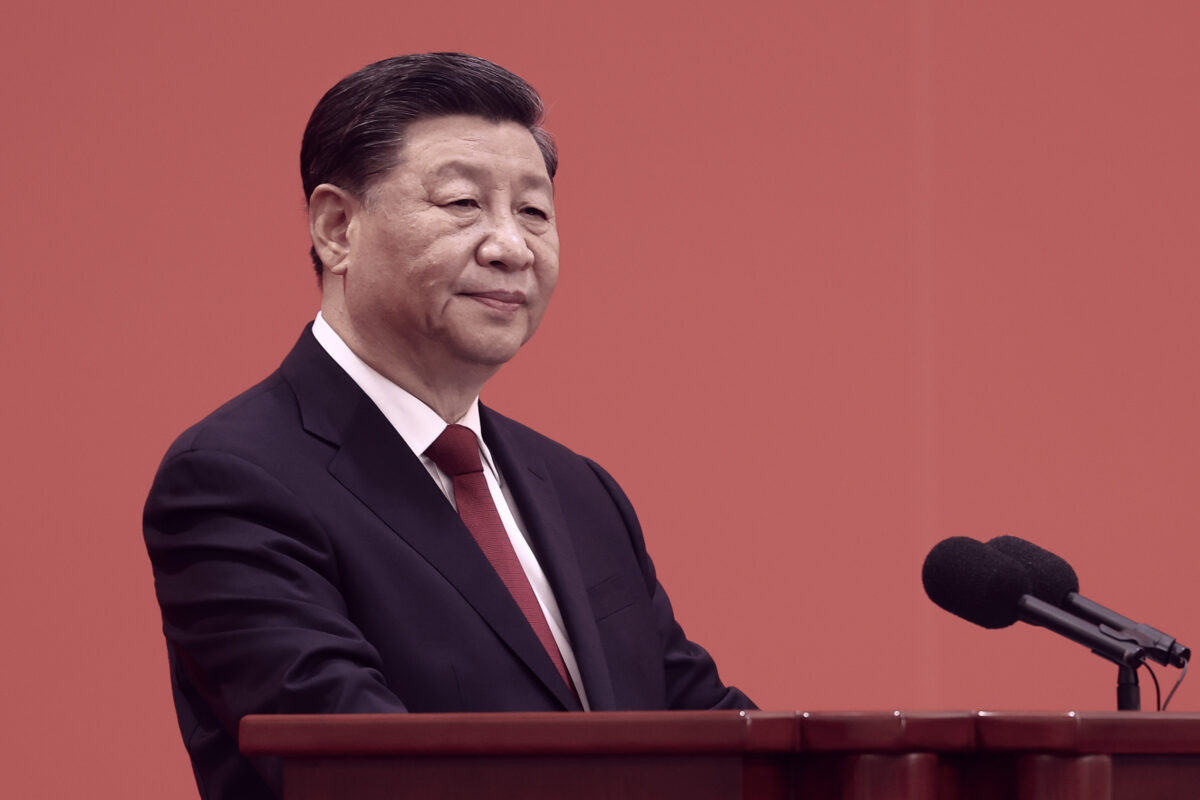


The Chinese economy is on the brink of being caught in a “confidence trap” as its post-pandemic recovery begins to slow.
Low confidence combined with a slowdown makes it difficult for the Chinese Communist Party (CCP) to stimulate the economy using standard methods, such as interest rate cuts and infrastructure spending, warned Citigroup economists.
China saw an initial burst in consumer and business activity earlier this year before its economy started to stall again, as Citigroup economists described the nation as “on the brink of a confidence trap,” reported Bloomberg.
“There seems to be a persistent lack of confidence among consumers, homebuyers, corporates, and investors. Weak expectations could be reinforcing each other and become entrenched and self-fulfilling,” said Citibank.
After Beijing reopened its economy six months ago, most investors expected the world’s second-largest economy to grow strongly in 2023 after nearly three years of harsh COVID-19 lockdowns.
Analysts believed that China’s surplus of $997 billion, gathered over the past three years, would boost consumption levels to pre-pandemic levels of 8 percent and achieve GDP growth of 5 percent in 2023.
However, official data on May 16 showed that business and consumer confidence started to decline in April.
This week’s poor economic results and concerns over the second half of the year have put pressure on the Chinese yuan, which slid past seven to the dollar on May 17.
Privately owned firms in China, especially in the tech sector, barely poured money into investments as the economy lost momentum, and consumers reduced their spending on durable goods last month.
There is concern that the Chinese economy will hit a tumultuous cycle as companies and households cut back on spending, causing the recovery to slow and weakening confidence even more.
Weak confidence makes the CCP’s previous stimulus policies, like state-led infrastructure spending and easy bank lending, less effective.
Concerns over weak imports, soft inflation, and a slowdown in manufacturing have caused foreign investors to worry.
Still, private investments in manufacturing have held up better than the decline in the property sector, where private companies have generally dominated.
Industrial production grew to 5.6 percent annually in April but below the projected estimate of 10.9 percent.
Furthermore, a 20.4 percent rise in the unemployment rate for young workers is a troubling sign that China’s post-pandemic economy cannot absorb the millions of new workers entering the labor market.
Citigroup’s economists blamed low confidence levels on the aftereffects of the CCP’s draconian pandemic measures and the end of its zero-COVID policy late last year.
Massive interference by Beijing was found to negatively affect sectors—such as the property market, technology, and education—due to excessive regulatory changes.
At the Politburo meeting in April, the CCP vowed to support the economic recovery, as low confidence threatens development, according to the state-run Xinhua News.
Chinese leader Xi Jinping and top party officials stated their support for private businesses at the meeting and promised to raise household income growth. But so far, most of the moves to boost consumer confidence have been at the local level.
Regional governments have made some highly publicized deals with non-state firms, such as the partnership between the city of Hangzhou and the locally-based Alibaba Group, according to Chinese media Zhejiang Daily.
The CCP’s new premier, Li Qiang, took a tour of several manufacturing companies in the eastern province of Shandong and declared that the key to ensuring a sustainable economic recovery was to “enhance the confidence in development,” Xinhua reported.
Foreign firms are beginning to feel less confident about their investments in China, most recently due to the CCP-led investigations into Bain & Co. and Mintz Group.
An American Chamber of Commerce in China survey from April 27 showed increasing pessimism over U.S.–China relations as tensions over Taiwan and tight competition in the tech sector between the two powers heat up.
“Bilateral relations between the United States and China have substantially deteriorated,” said Lester Ross, chair of AmCham China’s Policy Committee.
“It’s hard to see at this point when they will begin to improve—and this, of course, affects the ability of business to operate across borders.”
A recent survey published by the European Union Chamber of Commerce in China said that the CCP’s move to become self-reliant in the technology sector has made many European tech companies investing there rethink their research and development plans in the country.
Meanwhile, the CCP’s internet censors began to quell rising domestic online criticism over Beijing’s handling of the private sector last month, as the business environment turns sour.
